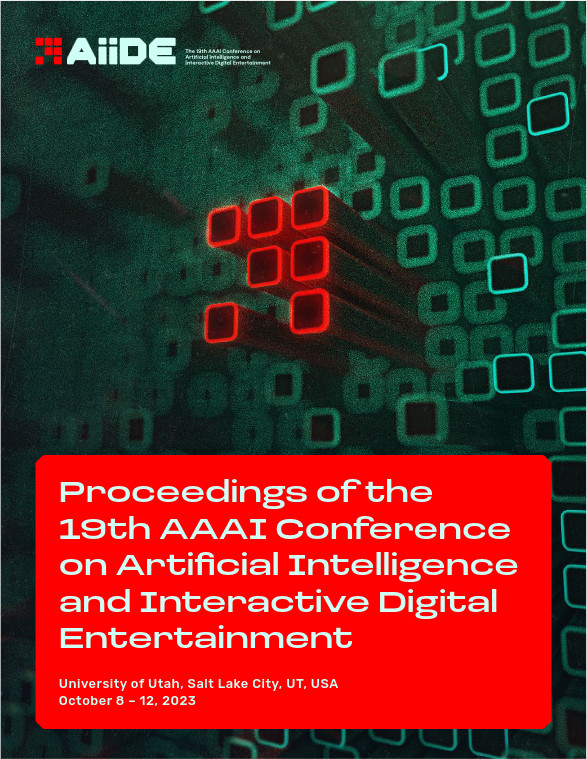Navigation in Adversarial Environments Guided by PRA* and a Local RL Planner
DOI:
https://doi.org/10.1609/aiide.v19i1.27530Keywords:
Adversarial Navigation, Hostile Environment, Partial Pathfinding With RL Planner, Reinforcement Learning In Games, RTS Games, Warcraft 3, PRA*, PRA* With RL, Real Time Strategy GamesAbstract
Real-time strategy games require players to respond to short-term challenges (micromanagement) and long-term objectives (macromanagement) simultaneously to win. However, many players excel at one of these skills but not both. This research is motivated by the question of whether the burden of micromanagement can be reduced on human players through delegation of responsibility to autonomous agents. In particular, this research proposes an adversarial navigation architecture that enables units to autonomously navigate through places densely populated with enemies by learning to micromanage itself. Our approach models the adversarial pathfinding problem as a Markov Decision Process (MDP) and trains an agent with reinforcement learning on this MDP. We observed that our approach resulted in the agent taking less damage from adversaries while travelling shorter paths, compared to previous approaches for adversarial navigation. Our approach is also efficient in memory use and computation time. Interestingly, the agent using the proposed approach also outperformed baseline approaches while navigating through environments that are significantly different from the training environments. Furthermore, when the game design is modified, the agent discovers effective alternate strategies considering the updated design without any changes in the learning framework. This property is particularly useful because in game development the design of a game is often updated iteratively.Downloads
Published
2023-10-06
How to Cite
Ray, D., & Sturtevant, N. R. (2023). Navigation in Adversarial Environments Guided by PRA* and a Local RL Planner. Proceedings of the AAAI Conference on Artificial Intelligence and Interactive Digital Entertainment, 19(1), 343-351. https://doi.org/10.1609/aiide.v19i1.27530
Issue
Section
Research Track Posters

